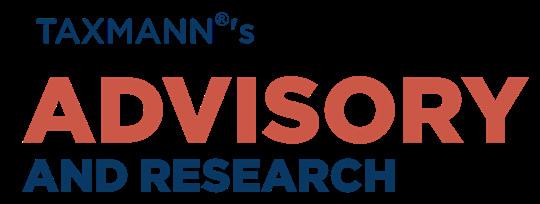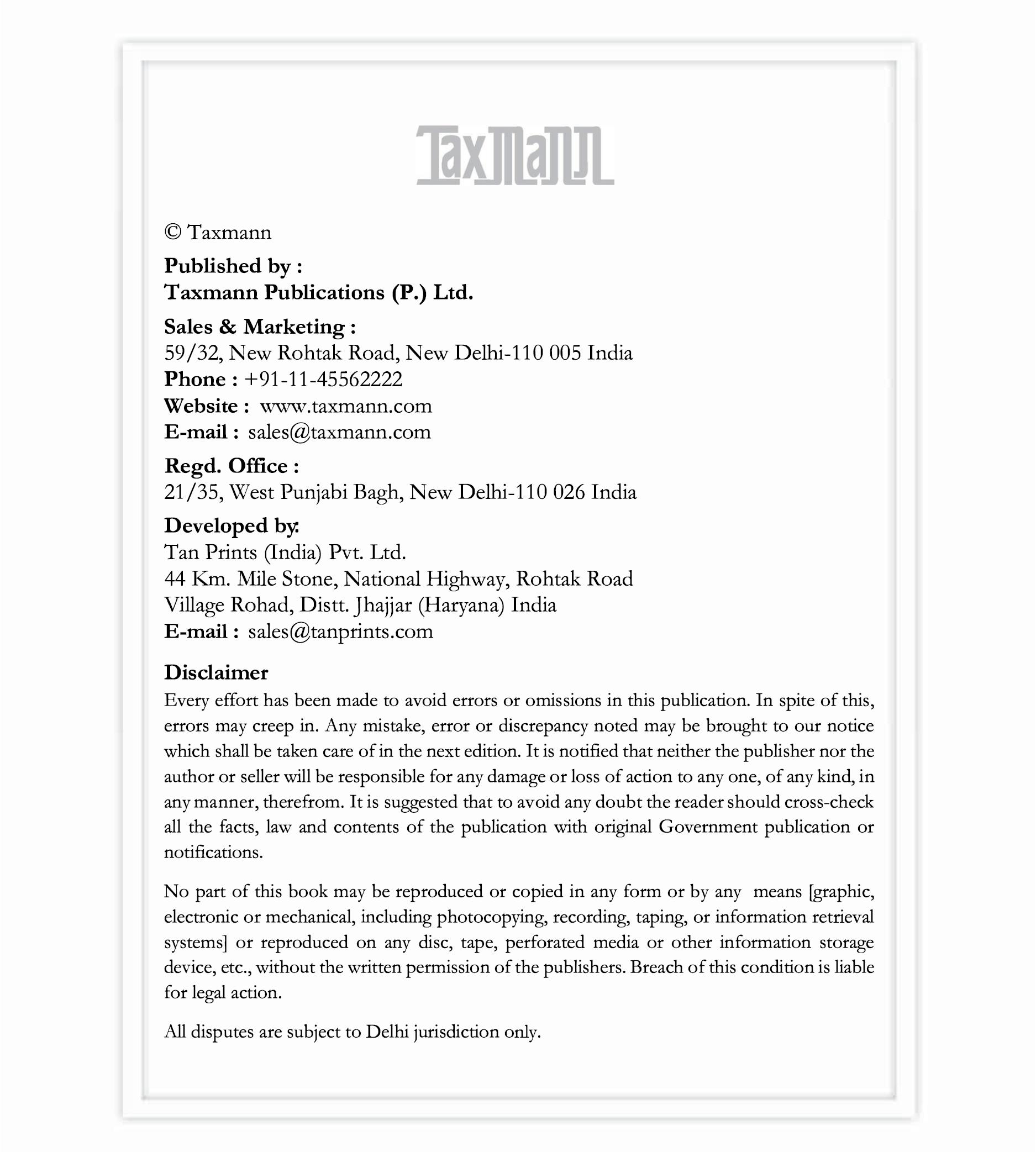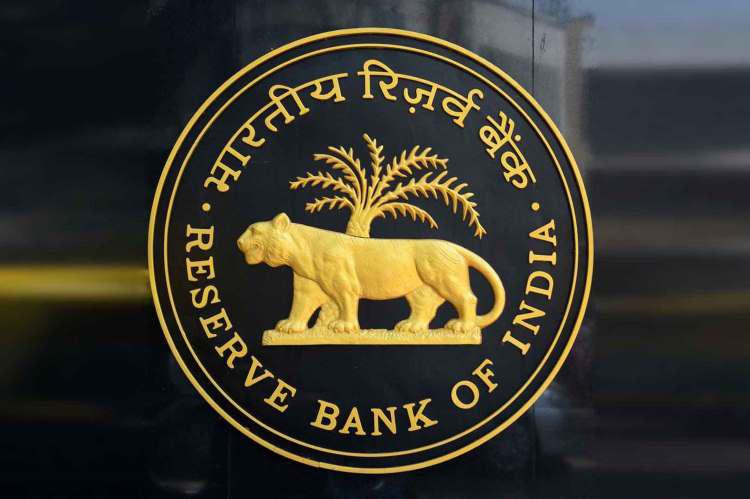








The provision relating to reporting under FEMA is governed by RBI’s Master Direction – Reporting under FEMA, 1999 (FED Master Direction No. 18/2015-16), updated from time to time. This direction establishes a comprehensive reporting framework for all foreign exchange transactions. The reporting framework requires various entities, including Authorised Dealer banks, companies, LLPs, and individuals, to report inflow and outflow of foreign exchange in specific forms and returns. The reporting ensures transparency and enables the effective monitoring of foreign currency inflows and outflows across diverse financial activities. This article provides a consolidated overview of the reporting requirements under the Foreign Exchange Management Act (FEMA), 1999. The information is presented in a tabular format for easy reference.
Authorised Money Changers (AMCs), also known as Full-Fledged Money Changers (FFMCs), are authorised by the RBI under Section 10 of FEMA, 1999. Along with AD Category I and II Banks, they widen access to foreign exchange facilities for residents and tourists. FFMCs can purchase foreign exchange from residents and non-residents and sell it for approved purposes. They may also appoint franchisees to purchase foreign currency. The prescribed return/forms for Authorised Money Changers (AMCs) are as follows:
S. No.
Particulars
(a) Applications
Form / Register / Statement
Application Form for FFMC Licence
(b) Franchisee Related Franchisee Information Form (RMC-F)
(c) Registers to be Maintained
(d) Quarterly Statement
(e) Annual Statement
(f) Director Information
FLM 1 – Daily Summary (Currency Notes/Coins)
FLM 2 – Daily Summary (Travellers’ Cheques)
FLM 3 – Register of Purchases from Public
FLM 4 – Register of Purchases from ADs/AMCs
FLM 5 – Register of Sales to Public
FLM 6 – Register of Sales to ADs/FFMCs/ Overseas Banks
FLM 7 – Register of Surrendered Travellers’ Cheques
FLM 8 – Monthly Summary statement of purchases and sales
Foreign Currency Account out of Export Proceeds of Foreign Currency Notes/ encashed Travellers’ Cheques
Foreign Currency Written Off during a financial year
Proforma – Information on New/Change of Directors of the FFMC / non-bank AD Category – II
MTSS allows only inward personal remittances (like family maintenance or remittances to foreign tourists) through tie-ups between overseas money transfer companies (Overseas Principals) and Indian Agents. No outward remittance is allowed. Both remitters and beneficiaries must be individuals. Indian Agents can disburse funds, but cannot remit them back to Overseas Principals. Reporting / Returns under MTSS are as follows:
S. No. Name of Report/ Returns
(a) List of Sub Agents
Annex XV Quarterly
(b) List of Additional Locations – Quarterly
(c) Quarterly Statement of Remittances
(d) Half-yearly Statement of Collateral
Annex XVI Quarterly
Annex XVII Half-Yearly (June & December)
Within 15 days of quarterend RBI FED Regional Office (updated list)
Within 15 days of quarterend Concerned FED Regional Office
Within 15 days of quarterend Through CIMS (NIL report if no remittance)
Within 15 days from the reporting date Concerned FED Regional Office (Indian Agents who are nonbank Authorised Category- II / FFMC shall submit the same in the APConnect application within the specified timeline)
Under the Rupee Drawing Arrangements (RDAs), cross-border inward remittances are received in India through Exchange Houses situated in Gulf countries, Hong Kong, Singapore, Malaysia (for Malaysia only under Speed Remittance Procedure) and all other countries which are FATF compliant (for all other countries which are FATF compliant only under Speed Remittance Procedure. The Reporting / Returns under RDA are as follows:
S. No.
(a) Application (Annexe XVIII)
One-time application by AD Cat-I banks for opening/maintaining Rupee vostro accounts of those non-resident Exchange Houses.
One-time
(b) Statement A (Annexe XIX) Exchange House-wise details of Rupee/ foreign currency Vostro account operations. Monthly
(c) Statement B (Annexe XX) Consolidated statement on Rupee/ foreign currency Vostro accounts to be closed/under closure. Half-yearly
(d) Statement C (Annexe XXI)
(e) Statement D (Annexe XXII)
(f) Statement E (Annexe XXIII)
(g) Annual Review Note
Details of overseas accounts of Exchange Houses under DDA/Non-DDA.
Monthly
Information on foreign currency Vostro account operations. Monthly
Remittances received; to be filed via CIMS (NIL report if no data).
To the RBI covering Exchange Houses’ creditworthiness, compliance, financials, risks, turnover, and Vostro account operations.
Quarterly (before the 15th of the succeeding month)
Annually (by 30th June)
Resident individuals can remit up to USD 250,000 per year under LRS/FEMA. AD Category-I banks must report transaction-wise LRS data daily through the Centralised Information Management System (CIMS) and also in FETERS under relevant purpose codes. Banks must ensure the data in FETERS and CIMS is properly reconciled. The Reporting / Returns under LRS are as follows:
(a) Daily Return (CIMS): AD Category-I banks must report transaction-wise LRS data on a T+1 basis via the Centralised Information Management System (CIMS). ‘Nil’ report must be submitted if there are no transactions.
(b) FETERS Reporting: LRS transactions must also be reported in the Foreign Exchange Transactions Electronic Reporting System (FETERS) under the relevant purpose codes (e.g., travel, medical, studies, property purchase, maintenance of relatives).
(c) Data Reconciliation: AD banks must ensure LRS data reported in FETERS matches the data reported in CIMS.
Foreign companies seeking to establish BO/LO/PO in India must comply with FEMA guidelines and reporting requirements through the AD Category-I banks. The Reports/ Returns are as follows:
Reports/ Certificates/ List
(a) Annual Activity Certificate (AAC) –Annexe I
Details Periodicity / Timeline To be reported by Reporting Authority
Submission of AAC along with audited financial statements, including the receipt and payment account.
On or before 30th September of every year, or within six months from the balance sheet date, if accounts are finalised with reference to a date other than 31st March
In case of Sole BO/LO: Office itself;
Multiple BOs/ LOs: Nodal office
Designated AD Category-I bank and Director General of Income Tax (International Taxation), New Delhi
AAC from a Chartered Accountant
(B) Monthly Consolidated List – Annexe II
Certification of project status, audited accounts, and conformity with general/ specific RBI permissions.
AD Category-I banks to report all BOs/LOs/POs opened or closed during the month.
(C) Annual Report to State Police – Annexe III
Applicable for entities from Bangladesh, Sri Lanka, Afghanistan, Iran, China, Hong Kong, Macau, and Pakistan.
- Report to be filed within five working days of the office becoming functional.
- A separate report must be filed for each office in different states.
Same as above Project Office / Chartered Accountant Designated AD Category-I bank
By the 5th of the succeeding month
Within five working days of the office becoming functional.
AD Cat-I Bank General Manager, RBI –Central Office Cell. Foreign Exchange Department, Sansad Marg, New Delhi-110 001
Entities setting up BO/LO/PO in India
Director General of Police (DGP) of the respective state.
Foreign investments in India are subject to reporting requirements under the FEM (Mode of Payment and Reporting of Non-Debt Instruments) Regulations, 2019. Reporting must be done through an authorised dealer bank via the Single Master Form (SMF) available on the Foreign Investment Reporting and Management System (FIRMS) platform. The reporting requirements are summarised as follows:
Particulars
Reporting for the Issue of Capital Instruments
R-Returns
Reporting of actual inflows on account of the issue of equity instruments
Form FC-GPR Issue of equity instruments to non-residents by an Indian company; applicable for bonus/right shares, cross-border mergers, sweat equity, ESOP conversions, and convertible notes
Form FLA (Annual Return on Foreign Liabilities and Assets)
Reporting for Transfer of Equity Instruments
An Indian company or LLP receiving FDI by way of Capital contribution
R-Returns Report actual inflows/outflows
Form FC-TRS Transfers of equity instruments between non-resident (holding on a repatriable basis→ non-resident (holding on a non-repatriable basis), and
Non-resident → resident
Normal course by the AD branch AD Branch
Within 30 days of the issue of equity instruments in the Single Master Form Indian Company
Submit by 15th July each year via the FLAIR portal with system-driven validation checks Indian Company/ LLP
Normal course by the AD branch AD Bank Branch
Within 60 days of transfer or fund receipt
Resident transferor/ transferee or PROI holding equity instruments on a non-repatriable basis, as the case may be
KYC
Reporting of Conversion of ECB into Equity
Form FCGPR & Form ECB-2
To ensure the KYC check of the sale consideration in the equity instrument.
If a different AD bank receives funds, submit KYC along with FC-TRS
In case of a foreign remitter ≠ beneficial owner, then the conditions with respect to. FC-GPR applies
Full conversion of ECB into equity
At the time of Receipt of Funds.
Form FCGPR & Form ECB-2
Form ECB-2
Reporting of ESOPs and Sweat Equity
Reporting of ADR/GDR Issues
Reporting Requirements for LLPs
KYC Check will be carried out by the AD bank.
KYC report to be submitted by the Transferor/transferee to the AD bank carrying out the transaction
Within seven working days from the close of the month to which it relates, mark “ECB wholly converted to equity” Company
Partial conversion Report converted portion separately; differentiate from non-converted portion
Subsequent months
Form ESOP Issue of ESOPs to non-resident employees/directors (or holding/subsidiary companies)
Form DRR Issue/transfer of sponsored/unsponsored depository receipts
Form FDILLP (I)
Form FDILLP (II)
Reporting for receiving a Capital contribution from a non-resident
Reporting of Disinvestment/transfer between resident and non-resident
Report outstanding ECB
Within 30 days of issue Issuing Company
Within 30 days of the close of the issue/program Domestic Custodian
Within 30 days; attach FIRC & KYC report LLP
Within 60 days; onus on resident transferor/transferee Resident transferor/ transferee
Particulars Form / Return Purpose / Applicability Timeline / Remarks To be Reported By
Reporting of Convertible Notes (CNs)
Form CN Start-up issuing CNs to non-residents
Transfer of CNs between resident and non-resident
Within 30 days of issue Start-up Company
Within 30 days, the AD bank is to ensure due diligence/KYC of the foreign investor/ buyer Resident transferor/ transferee
Foreign Portfolio Investments (FPI) in India, other than by NRIs/OCIs, must be reported by AD banks in Form LEC(FII) on a daily basis. Banks are responsible for reconciling submitted data periodically. Equity issued to FPIs considered as FDI is reported separately in Form FC-GPR. Reporting under FPI is summarised hereunder:
Particulars Form / Return Purpose / Applicability Timeline / Remarks To be Reported By
Reporting of Foreign Portfolio Investment (FPI)
Form LEC(FII) FPI investments (excluding NRIs/ OCIs) under Schedule II of NDI Rules
Form FCGPR An Indian company issuing equity instruments to FPIs is considered FDI
Form LEC(NRI) Investments by NRIs/OCIs under Schedule III of NDI Rules
Daily Basis; AD banks to ensure reconciliation via FPI holding reports
Standard FC-GPR filing rules, i.e. within 30 days of the issue of equity instruments in the Single Master Form Indian Company
Daily basis, the designated AD link office ensures reconciliation via NRI holding reports
The designated link office of the AD bank must submit a daily report in Form LEC (NRI) to the Reserve Bank, covering all investments made by NRIs/OCIs under Schedule III to the NDI Rules, 2019, classified as Foreign Portfolio Investment under Rule 2(t) of the NDI Rules. The bank is responsible for periodically reconciling the submitted data using NRI holding reports.
Any Indian entity or investment vehicle making a downstream investment in another Indian entity, classified as indirect foreign investment, must file Form DI with the Reserve Bank within 30 days of allotment of equity instruments.
Investments in equity instruments by Foreign Venture Capital Investors (FVCIs) under Schedule VII of the NDI Rules, 2019 must be reported in Form FC-GPR. Transfers of such capital instruments between an FVCI and a resident in India must be reported in Form FC-TRS. Valuation certificates are not required as pricing guidelines do not apply to Schedule VII investments.
An investment vehicle issuing units to a person resident outside India under Schedule VIII of NDI Rules, 2019 must file Form InVI within 30 days of the issue of units.
Indian companies are permitted to raise funds from abroad through various instruments such as External Commercial Borrowings (ECBs), Foreign Currency Convertible Bonds (FCCBs), Preference Shares, and Foreign Currency Exchangeable Bonds (FCEBs). ECBs may be availed either under the Automatic Route, subject to compliance with the RBI’s prescribed guidelines, or under the Approval Route, which requires prior approval from the RBI. The reporting requirements under the ECB are summarised hereunder: Instrument
External Commercial Borrowings (ECB)
Borrowings under the Automatic or Approval Route to be reported to the RBI
Monthly reporting of actual transactions (drawdown, repayment, interest, charges, etc.)
Form ECB (through an AD Category-I bank to RBI)
ECB-2 Return (through AD Category-I bank to RBI)
Within 7 days from the signing of the loan agreement
By the 7th of the following month
Instrument Reporting Requirement
Foreign Currency Convertible Bonds (FCCBs)
Preference Shares (NonConvertible/ Redeemable/ Partly Convertible)
Reporting of the issue of FCCBs to RBI
Treated as ECB if redeemable; equity if compulsorily convertible.
Reporting depends on structure: • Compulsorily Convertible: Report as FDI • Redeemable / Non-Convertible: Report as ECB
Form / Mode of Reporting Timeline
Form FC-GPR (via FIRMS portal)
Form FC-GPR (for FDI) / Form ECB + ECB-2 Return (for ECB)
Within 30 days of issue
30 days from issue (for FDI) / ECB timelines (for debt nature)
Foreign Currency Exchangeable Bonds (FCEBs)
Reporting of the issue of FCEBs to RBI
Form FC-GPR (via FIRMS portal)
Within 30 days of issue
The Reserve Bank of India (RBI) requires periodic reporting from AD Category-I banks and authorised banks to monitor remittances, non-resident accounts, and deposits. The reporting obligations are as follows: Report / Return
(Reporting Entity)
Monthly Statement on Remittances from NRO Accounts (Annexe I)
Quarterly Report on Accounts of Bangladeshi Nationals
Monthly –within 7 days of the end of each month
AD Category-I banks
General Managerin-Charge, Foreign Exchange Department, RBI, Central Office Cell, New Delhi
Quarterly Head Office of AD banks Ministry of Home Affairs (Foreigners Division)
Report / Return
Monthly Return on Non-Resident Deposits (Annexe II – NRD-CSR)
Monthly, filed on the RBI XBRL platform through:
(a) RBI’s NRD-CSR template → .xml upload, or
(b) Public/ Internal XBRL tool aligned with RBI NRD-CSR discipline.
Authorised banks (through nodal office)
RBI, Department of Statistics and Information Management (DSIM), Central Office
A Person resident in India who has made an Overseas Investment must comply with various compliance and reporting requirements prescribed under the FEM (Overseas Investment) Regulations, 2022 or any other compliance/reporting guidelines notified by the Reserve Bank of India (RBI). All reporting with respect to overseas investment by a person resident in India shall be made through the designated AD bank as per the revised reporting forms and instructions contained in the “Master DirectionReporting under Foreign Exchange Management Act, 1999. The list of reports/returns under ODI norms is summarised hereunder:
Form FC – Sections A, B, C, D & E
Initial reporting of financial commitment in a foreign entity (details of Indian entity, foreign entity, transaction, declaration, auditor’s certificate)
Form FC – Section F Reporting restructuring of a foreign entity’s balance sheet involving a diminution in value of dues (equity/debt)
Person resident in India (Indian Entity / Resident Individual) making a financial commitment
A person resident in India who has made an ODI
At the time of outward remittance or financial commitment, whichever is earlier
Within 30 days of restructuring
Form/Report
Form FC – Section G Reporting disinvestment (sale, transfer, buyback, closure, liquidation, winding up, merger, amalgamation)
Form FLA
Annual Performance Report (APR)
Form OPI
Annual Return on Foreign Liabilities and Assets
Captures shareholding pattern, financials, repatriation, stepdown subsidiaries, and major events
Captures OPI transactions (including by MF, AIF, VCF, ESOP/ EBS schemes)
A person resident in India undertaking a disinvestment
Within 30 days of receipt of disinvestment proceeds
Indian Entities which have made ODI in the current or previous years
A person resident in India acquiring equity capital in a foreign entity is reckoned as ODI
Person resident in India (other than resident individual); also covers Indian Companies, Mutual Funds, AIF/VCF, and OPI under ESOP/EBS
By 15th July every year
By 31st December each year (or next year if the foreign entity’s year ends on 31st December)
Within 60 days from the end of the half-year (September/ March)
A person resident outside India who establishes a branch, office, project office, or other place of business in India (excluding liaison office) and acquires any immovable property necessary/incidental to its activities is required to file a declaration in Form IPI with the Reserve Bank of India within 90 days from the date of acquisition, as prescribed under the FEMA (Establishment in India of a Branch Office, Liaison Office or Project Office) Regulations, 2016.
Export transactions are subject to detailed reporting requirements prescribed by the Reserve Bank of India to ensure transparency, compliance, and proper monitoring of foreign exchange inflows. AD Category–I banks play a pivotal role in collecting and submitting various forms and returns, such as EDF, SOFTEX, EDPMS reports, and
export advances. These reporting compliances cover reporting of export of goods, software, long-term contracts, factoring, overdue bills, and e-commerce transactions. Various forms/reports under Export of Goods and Services are summarised hereunder:
Form/Report
EDF Form
SOFTEX Form
Annexe III – Advance against Long-term Exports
Export Factoring –EDPMS
Overdue Bills / XOS (via EDPMS)
Purpose Who should file Timeline for Submission
Declaration of export of goods at Non-EDI ports
Declaration of export of software (single or bulk)
Reporting receipt of long-term export advances (up to 10 years)
Reporting of export receivables factored on a non-recourse basis
Monitoring and closure/write-off of overdue export bills
EFC Application Application for opening Exchange Earners’ Foreign Currency (EFC) accounts in India/ abroad
OPGSP Reporting
Reporting tieups with Online Payment Gateway Service Providers for e-commerce exports
Exporter At the time of shipment
Software exporters Within 30 days from the date of the invoice for software export
Exporters with ≥ 3-year track record
On receipt of advance; ≥USD 100 million cases to be intimated immediately to RBI
Exporter through AD Bank As per the transaction reporting cycle in EDPMS
AD Banks (on behalf of exporters)
Continuous, as and when bills are realised/closed
Exporters At the time of the account opening request
AD Category-I Banks Details to be submitted to RBI, FED, and Central Office upon arrangement
AD Category–I banks have specific reporting obligations in relation to imports, which are monitored by the Reserve Bank of India. These include half-yearly, monthly, and fortnightly submissions covering default in import documentation, gold imports, merchanting trade, online payment gateways, and diamond imports. The returns are filed through designated RBI portals such as XBRL and CIMS. Various returns and reports that are filed by AD banks under the Import provisions are summarised as follows:
Form / Report Purpose Who should file Timeline for
Form BEF via XBRL
Return Code R133 (HY) via CIMS
Return Code R132 (M)
Details of import transactions > USD 100,000 where the importer defaulted in submitting import documents within 6 months
Import of gold by EOUs/ SEZ/EPZ/nominated agencies (incl. banks); quantity, value, mode of payment-wise
Import of gold by EOUs/ SEZ/EPZ/nominated agencies (other than nominated banks); monthly + cumulative FY position
AD Category–I Banks (Bankwide)
Half-yearly (June/ Dec) – within 15 days of the half-year end
(Merchanting Trade Defaults Report)
R-Return (NOSTRO & VOSTRO)
Extension of Time Report (Diamonds)
(Advance Remittance Report)
Report of defaults (any leg) in Merchanting Trade transactions
Reporting OPGSP import transactions, based on invoice & airway bill
Report extensions granted beyond 180 days for the import of rough/cut/polished diamonds
Report advance remittances ≥ USD 5 million without BG/ SBLC for import of rough diamonds
Head Office/ International Banking Division of AD Category–I Banks
Head Office/ International Banking Division of AD Category–I Banks
Half-yearly (end March/Sept) – by the 10th of the following half year
Monthly – by the 10th of the following month
AD Category–I Banks Half-yearly (June/ Dec) – within 15 days of the half-year end
AD Category–I Banks Fortnightly – within 7 days of the end of the fortnight
AD Category–I Banks
AD Category–I Banks
Half-yearly (Apr–Sept, Oct–Mar) –within 15 days of the half-year end
Half-yearly – within 15 calendar days of the half-year end


Founded 1972


Evolution From a small family business to a leading technology-oriented Publishing/Product company


Expansion

Launch of Taxmann Advisory for personalized consulting solutions

Aim
Achieve perfection, skill, and accuracy in all endeavour

Growth
Evolution into a company with strong independent divisions: Research & Editorial, Production, Sales & Marketing, and Technology

Future
Continuously providing practical solutions through Taxmann Advisory
Editorial and Research Division
Over 200 motivated legal professionals (Lawyers, Chartered Accountants, Company Secretaries)
Monitoring and processing developments in judicial, administrative, and legislative fields with unparalleled skill and accuracy
Helping businesses navigate complex tax and regulatory requirements with ease

Over 60 years of domain knowledge and trust
Technology-driven solutions for modern challenges
Ensuring perfection, skill, and accuracy in every solution provided
Income Tax
Corporate Tax Advisory
Trusts & NGO Consultancy
TDS Advisory
Global Mobility Services
Personal Taxation
Training
Due Diligence
Due Dilligence
Advisory Services
Assistance in compounding of offences
Transactions Services
Investment outside India
Goods
Transaction Advisory
Business Restructuring
Classification
Due Diligence
Training
Advisory
Trade Facilitation Measures
Corporate
Corporate Structuring
VAT Advisory
Residential Status

Naveen Wadhwa
Research and Advisory [Corporate and Personal Tax]
Chartered Accountant (All India 24th Rank)
14+ years of experience in Income tax and International Tax
Expertise across real estate, technology, publication, education, hospitality, and manufacturing sectors
Contributor to renowned media outlets on tax issues

Vinod K. Singhania Expert on Panel | Research and Advisory (Direct Tax)
Over 35 years of experience in tax laws
PhD in Corporate Economics and Legislation
Author and resource person in 800+ seminars

V.S. Datey Expert on Panel | Research and Advisory [Indirect Tax]
Holds 30+ years of experience
Engaged in consulting and training professionals on Indirect Taxation
A regular speaker at various industry forums, associations and industry workshops
Author of various books on Indirect Taxation used by professionals and Department officials

Manoj Fogla Expert on Panel | Research and Advisory [Charitable Trusts and NGOs]
Over three decades of practising experience on tax, legal and regulatory aspects of NPOs and Charitable Institutions
Law practitioner, a fellow member of the Institute of Chartered Accountants of India and also holds a Master's degree in Philosophy
PhD from Utkal University, Doctoral Research on Social Accountability Standards for NPOs
Author of several best-selling books for professionals, including the recent one titled 'Trust and NGO's Ready Reckoner' by Taxmann
Drafted publications for The Institute of Chartered Accountants of India, New Delhi, such as FAQs on GST for NPOs & FAQs on FCRA for NPOs.
Has been a faculty and resource person at various national and international forums

the UAE
Chartered Accountant (All India 36th Rank)
Has previously worked with the KPMG

S.S. Gupta Expert on Panel | Research and Advisory [Indirect Tax]
Chartered Accountant and Cost & Works Accountant
34+ Years of Experience in Indirect Taxation
Bestowed with numerous prestigious scholarships and prizes
Author of the book GST – How to Meet Your Obligations', which is widely referred to by Trade and Industry

Sudha G. Bhushan Expert on Panel | Research and Advisory [FEMA]
20+ Years of experience
Advisor to many Banks and MNCs
Experience in FDI and FEMA Advisory
Authored more than seven best-selling books
Provides training on FEMA to professionals
Experience in many sectors, including banking, fertilisers, and chemical
Has previously worked with Deloitte
Taxmann Delhi
59/32, New Rohtak Road
New Delhi – 110005 | India
Phone | 011 45562222
Email | sales@taxmann.com
Taxmann Mumbai
35, Bodke Building, Ground Floor, M.G. Road, Mulund (West), Opp. Mulund Railway Station Mumbai – 400080 | Maharashtra | India
Phone | +91 93222 47686
Email | sales.mumbai@taxmann.com
Taxmann Pune
Office No. 14, First Floor, Prestige Point, 283 Shukrwar Peth, Bajirao Road, Opp. Chinchechi Talim, Pune – 411002 | Maharashtra | India
Phone | +91 98224 11811
Email | sales.pune@taxmann.com
Taxmann Ahmedabad
7, Abhinav Arcade, Ground Floor, Pritam Nagar Paldi
Ahmedabad – 380007 | Gujarat | India
Phone: +91 99099 84900
Email: sales.ahmedabad@taxmann.com
Taxmann Hyderabad
4-1-369 Indralok Commercial Complex Shop No. 15/1 – Ground Floor, Reddy Hostel Lane Abids Hyderabad – 500001 | Telangana | India
Phone | +91 93910 41461
Email | sales.hyderabad@taxmann.com
Taxmann Chennai No. 26, 2, Rajan St, Rama Kamath Puram, T. Nagar
Chennai – 600017 | Tamil Nadu | India
Phone | +91 89390 09948
Email | sales.chennai@taxmann.com
Taxmann Bengaluru
12/1, Nirmal Nivas, Ground Floor, 4th Cross, Gandhi Nagar
Bengaluru – 560009 | Karnataka | India
Phone | +91 99869 50066
Email | sales.bengaluru@taxmann.com
Taxmann Kolkata Nigam Centre, 155-Lenin Sarani, Wellington, 2nd Floor, Room No. 213
Kolkata – 700013 | West Bengal | India
Phone | +91 98300 71313
Email | sales.kolkata@taxmann.com
Taxmann Lucknow
House No. LIG – 4/40, Sector – H, Jankipuram Lucknow – 226021 | Uttar Pradesh | India
Phone | +91 97924 23987
Email | sales.lucknow@taxmann.com
Taxmann Bhubaneswar
Plot No. 591, Nayapalli, Near Damayanti Apartments
Bhubaneswar – 751012 | Odisha | India
Phone | +91 99370 71353
Email | sales.bhubaneswar@taxmann.com
Taxmann Guwahati
House No. 2, Samnaay Path, Sawauchi Dakshin Gaon Road
Guwahati – 781040 | Assam | India
Phone | +91 70866 24504
Email | sales.guwahati@taxmann.com